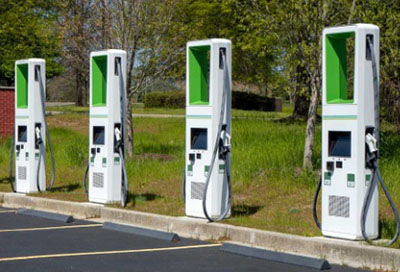by WorldTribune Staff, December 7, 2023
Included in Joe Biden’s 2021 infrastructure bill is $7.5 for the construction of electric vehicle (EV) chargers. The goal was to install over a million new public chargers by the end of the decade.
 It’s all part of Team Biden’s goal to have half of all new vehicle sales by 2030 be EVs and for net-zero emissions by 2050.
It’s all part of Team Biden’s goal to have half of all new vehicle sales by 2030 be EVs and for net-zero emissions by 2050.
How’s that working out?
Thus far, not a single new EV charger has been built.
The $7.5 billion for EV chargers consists of the $5 billion National Electric Vehicle Infrastructure (NEVI) program and the $2.5 billion Charging and Fueling Infrastructure Discretionary Grant Program, both of which are being administered through agencies affiliated with Pete Buttgieg’s Department of Transportation (DOT).
More than $2 billion of the $7.5 billion has already been authorized, yet not even half of states “have started to take bids from contractors for construction — and not a single new public charger has been built,” Tom Ozimek reported for The Epoch Times on Dec. 5.
Former President Donald Trump said he is opposed to EV subsidies, arguing that the government should step aside and let market forces decide what vehicles people drive.
Currently, there are 182,892 public EV chargers in the U.S., according to the Energy Department.
Studies show that a key factor why millions of Americans are reluctant to buy electric vehicles is so-called “range anxiety,” which is the fear among drivers that their EV will run out of power and grind to a halt on the side of the road with no charger in sight.
To alleviate that anxiety, the National Renewable Energy Laboratory (NREL) estimated that the size of the national charging network needs to grow from roughly 3.1 million ports in 2022 to 28 million by 2030, with the vast majority being private chargers.
But auto manufacturers are saying that demand for EVs is not keeping up with Team Biden’s expectations, forcing them to scale back some EV expansion plans.
Buttigieg, who has tried to push EVs onto a reluctant public, recently acknowledged that many of the existing chargers don’t work.
His admission came as the DOT announced $100 million in funding for repairing and replacing existing EV charging stations.
Publishers and Citizen Journalists: Start your Engines
